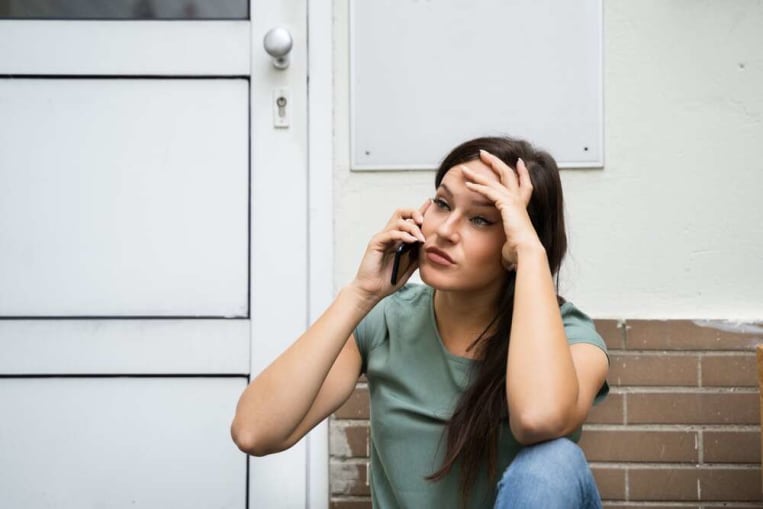
BBB Scam Alert: Locked out? Don't fall for a locksmith scam

(Getty Images)
Most people only call a locksmith when they are desperate for help. That means it’s easy to overlook red flags and fall prey to a scammer. By getting to know the signs of a locksmith scam ahead of time, you can avoid trouble if an emergency does arise.
How Locksmith Scams Work
You’ve locked yourself out of your home or car! You take out your phone and do a quick search for locksmiths in your area. This is where the scam begins. Many locksmith scammers use the name and logo of a reputable locksmith to advertise their business. When you call these imitators, they may answer with a generic “Hello, locksmith services,” rather than a specific business name.
In one common version of this scam, the person on the phone offers you an extremely cheap quote – as low as $15. However, once the locksmith arrives on-site, they find a number of “reasons” to raise the price. Scammers prey on consumers’ feelings of desperation, and victims often end up paying hundreds more than what they were initially quoted.
In other cases, scammers may also claim that opening your door is impossible. They insist you need to drill the old lock and replace it with a new, expensive lock. This, too, is most likely a deception; a skilled locksmith can open just about any lock. In addition, scammers like to sell “extra-secure” locks that, in reality, are cheap and anything but secure. What’s even more disturbing is that a scam locksmith now knows where you live or work and how to gain reentry later on.
How to avoid locksmith scams:
- Critique their advertising. Look closely at the business's advertisements. Is the specific name of the business clearly identified? Does the ad look similar to other ads but have a different name? Does it appear that the dealer actually operates under several names?
- Ask plenty of questions. Most consumer complaints concern fees that were not disclosed when they called the locksmith. Ask about the cost of a service call, mileage, and parts before you agree to have the work performed. Get an estimate before any work begins, including emergency service. If the on-site estimate doesn't match the price quoted on the telephone, have the job done by someone else.
- Check identification. Most legitimate locksmiths will arrive in a clearly marked vehicle and provide identification. Remember that you will be allowing a stranger into your home.
- Be wary of “necessary” drilling. Understand that it isn’t routine for a locksmith to insist on drilling the lock to open it. Most locksmiths have the skills to open almost any lock.
- Demand an invoice. You can't dispute a charge without proof of how much you paid and what you paid for. Insist on an itemized invoice that includes parts, labor, mileage and service charges. The invoice should also include the business name and address. Use your credit card to pay for locksmith services for added security.
- Look up the business on BBB.org or view the BBB Directory for Locksmiths Near You. Hiring a BBB Accredited Locksmith will give you peace of mind that this business is not a scam.
For More Information
Find BBB Accredited locksmiths before you have an emergency. Keep their number in your wallet or phone, in case you find yourself in need of services later on. Find out more about BBB Accreditation Standards.
If you’ve been the victim of a locksmith scam, report the incident to BBB.org/ScamTracker. Your report can help alert others to similar scams.
Still Need Assistance?
Contact Your Local BBB
Your local Better Business Bureau can assist you with finding businesses you can trust. Start With Trust®.
Additional Resources
Let BBB help you resolve problems with a business
Research and report on scams and fraud using BBB Scam Tracker
Learn more about the value of BBB Accreditation